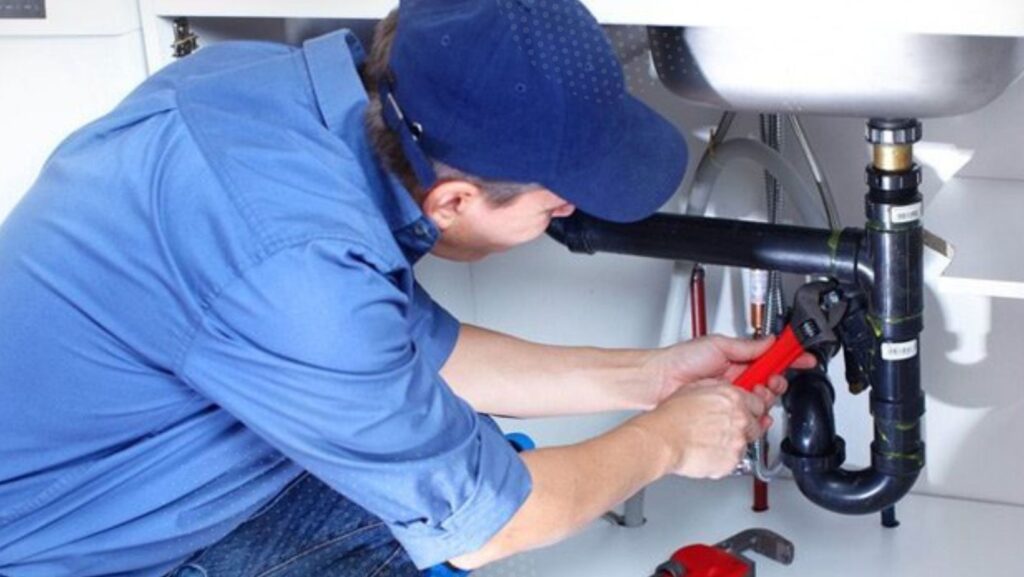There’s a certain kind of panic that only plumbing issues seem to inspire. A pipe bursts, the toilet won’t flush, or the sink fills up and refuses to drain—and suddenly, you’re staring at your phone, wondering who to trust with your home, your time, and, let’s be honest, your wallet.
The internet gives you plenty of choices. Maybe too many. A quick search for a local plumber brings up a flurry of names, logos, review snippets, and taglines all promising they’re the fastest, cheapest, and most reliable in town. But when everything’s urgent and every option sounds good, how do you filter through the noise and make the right call?
The truth is, finding a decent plumber online isn’t just about clicking the first result. It’s about reading between the lines—and knowing what to look for before you hand over the job.
Look Beyond The First Page Of Search Results
Let’s get this out of the way: Google doesn’t always show you the best plumber. It often shows you the one with the biggest ad budget or the best SEO team. That’s not to say those top spots are filled with fraudsters, but visibility doesn’t always equal quality.
Take a moment to go beyond the first few results. Explore websites that actually tell you something. Do they provide useful information about services, not just flashy slogans? Are their contact details easy to find? Do they mention availability and areas covered in plain language?
A well-designed, clear website can be a good sign. It suggests the business has taken the time to present itself professionally—possibly the same attention to detail they’ll bring to your pipes. For example, companies like flowise.co.uk tend to stand out not because they shout the loudest, but because they offer real transparency about the kind of work they do, where they operate, and how they approach customer service.
Don’t Just Skim The Reviews—Read Them Closely
Five-star ratings are great, but what you really want are the stories behind them. Look for reviews that describe the kind of job you’re dealing with. Did the plumber respond quickly to an emergency? Were they respectful in someone’s home? Did they solve a tricky issue another company couldn’t fix?
Also, pay attention to how the company responds to negative reviews—if at all. A thoughtful, polite reply to criticism says more than a perfect star rating. It shows accountability, and that counts for a lot in trades where trust and repeat business matter.
On the flip side, if all the reviews sound weirdly similar or overly glowing, it’s fair to raise an eyebrow. The best feedback tends to be specific, varied, and—occasionally—a little rough around the edges. That’s normal.
Check For Qualifications And Insurance (Even If You’re In A Hurry)
When your kitchen is flooding, it’s tempting to prioritise speed over credentials. But don’t. A properly licensed plumber with public liability insurance isn’t just a legal requirement—it’s your safety net.
Most reputable plumbers will list their credentials somewhere on their site or be happy to confirm them over the phone. If they hesitate or dodge the question, that’s a red flag. You want someone who doesn’t just say they’re qualified, but can actually prove it.
And if your job involves gas work—boiler repairs, for example—always check for Gas Safe registration. This one’s non-negotiable.
Consider How They Communicate Before You Book
The way a plumber communicates before you hire them can tell you a lot about how they’ll behave once they’re on the job. Do they answer the phone promptly or return your messages quickly? Are they polite, clear, and able to give you a rough idea of pricing, availability, or what to expect?
If they’re vague, rushed, or pushy, you might be setting yourself up for a frustrating experience. Clear communication upfront usually leads to better communication throughout the job—especially if complications arise (as they sometimes do).
Think About The Type Of Work You Need
Not all plumbers do all things. Some specialise in emergency response, others focus on installations or routine maintenance. Figure out what kind of job you’re dealing with—repair, upgrade, inspection—and make sure the plumber you choose has relevant experience.
You can often get a sense of this from their site or a quick call. And don’t be afraid to ask how many similar jobs they’ve done recently. A good plumber won’t mind giving you that context.
Watch Out For “Too Good To Be True” Pricing
A surprisingly cheap quote might be tempting, especially if you’re dealing with a non-insured repair. But low prices often come with hidden costs—rushed work, cut corners, or jobs that don’t quite get finished.
Ask for clarity around pricing. Will you be charged for call-out time? Is the quote fixed or just an estimate? What happens if more work is required once they start?
Honest tradespeople are usually upfront about how they bill and happy to talk you through it. Ambiguity is where misunderstandings happen—and where stress (and costs) can spiral quickly.
Final Thoughts
There’s no shortage of plumbers online. The challenge is finding one who doesn’t just show up, but actually solves your problem with skill, transparency, and respect for your space.
So next time your tap leaks, your pipes groan, or your boiler refuses to cooperate, don’t just Google and go with the top result. Take a beat. Look for clarity, credentials, and conversation.
Because a good plumber isn’t just someone with tools—it’s someone you feel comfortable letting into your home, confident they’ll leave it better than they found it.
